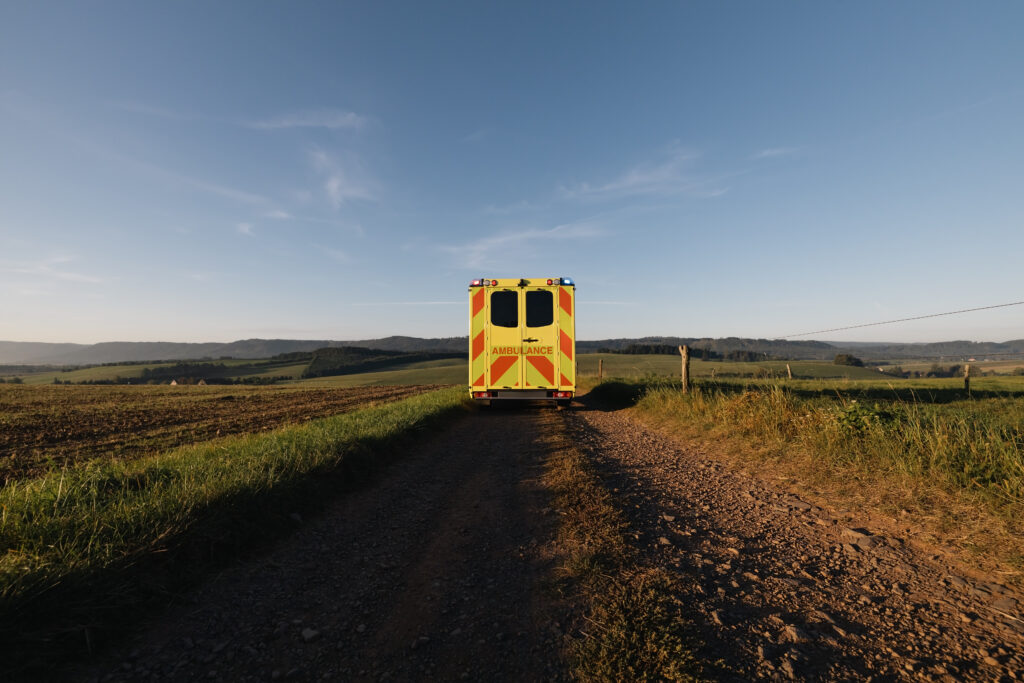Many people worry: What if you touch something that has fentanyl on it? Can it be absorbed through the skin? While fentanyl is an extremely potent opioid, brief skin contact is highly unlikely to cause harm or overdose. Research shows that fentanyl does not absorb through intact skin quickly enough to be dangerous. However, risks increase if the drug enters the body through open wounds, inhalation, or mucous membranes (eyes, nose, mouth).
If you suspect exposure, wash your hands immediately with soap and water—avoid hand sanitizer, as it may increase absorption. Accidental skin contact alone does not warrant panic, but understanding fentanyl’s real risks is essential. At Align Recovery Centers, we provide education and support for those affected by opioid addiction.
Understanding Fentanyl Exposure
Fentanyl is a highly potent synthetic opioid, estimated to be 50 to 100 times stronger than morphine. It is commonly prescribed for severe pain management but is also found in illicit drug supplies, contributing to a rise in overdose deaths. Despite its potency, casual skin contact with fentanyl is unlikely to cause immediate harm or overdose. Studies confirm that the drug does not absorb through intact skin quickly enough to pose a serious risk. However, certain conditions increase the danger of exposure, such as:- Prolonged contact with fentanyl powder or residue
- Absorption through open cuts or wounds
- Accidental inhalation of airborne fentanyl particles
- Contact with mucous membranes (eyes, nose, or mouth)
Can Fentanyl Be Absorbed Through the Skin?
One of the most persistent myths about fentanyl is that simply touching it can cause an overdose. However, toxicology experts confirm that fentanyl does not absorb through intact skin quickly enough to be dangerous. Casual contact, such as briefly touching a contaminated surface, is unlikely to lead to harmful effects. That said, certain conditions may increase the risk of exposure. If fentanyl remains on the skin for an extended period, there is a slight possibility of absorption, though the likelihood of overdose remains low. The risk is greater if fentanyl comes into contact with open wounds, cuts, or mucous membranes like the eyes, nose, or mouth, as these allow the drug to enter the bloodstream more easily. Additionally, fentanyl in powder form can become airborne and, if inhaled, may lead to severe health risks, including overdose. While incidental contact with fentanyl is generally not dangerous, it is essential to take precautions, such as washing hands with soap and water and avoiding touching the face after potential exposure.What If You Touch Something That Has Fentanyl On It?
If you suspect you’ve come into contact with fentanyl, follow these steps to reduce any potential risk:Remain Calm
If you suspect you’ve touched fentanyl, don’t panic. Brief skin contact is highly unlikely to cause harm or overdose. Fentanyl does not absorb quickly through intact skin, so there is no immediate danger. Staying calm allows you to respond appropriately without unnecessary stress.Wash Your Hands Immediately
The best way to remove any potential fentanyl residue is by washing your hands thoroughly with soap and water. Avoid using alcohol-based hand sanitizers, as they may increase the likelihood of absorption. Soap and water effectively break down and remove fentanyl particles from the skin.Avoid Touching Your Face
To prevent any risk of fentanyl entering your body, refrain from touching your eyes, nose, or mouth before washing your hands. Fentanyl can be more easily absorbed through mucous membranes, so it’s crucial to keep your hands away from these areas until they are clean.Seek Medical Attention if Symptoms Occur
Although overdose from skin contact is extremely rare, if you experience symptoms such as dizziness, confusion, slowed breathing, or unconsciousness, seek medical help immediately. If someone else is showing signs of opioid toxicity, call 911 and administer naloxone (Narcan) if available. Quick action can be lifesaving in cases of opioid exposure through inhalation or ingestion.Fentanyl Overdose Symptoms
While fentanyl overdose from skin contact is extremely rare, exposure through inhalation or ingestion can be life-threatening. Fentanyl is a powerful opioid that depresses the central nervous system, leading to dangerously slow or stopped breathing. Recognizing the signs of overdose is critical for taking immediate action. Symptoms of a fentanyl overdose may include:- Extreme drowsiness or unconsciousness – The person may struggle to stay awake or become completely unresponsive.
- Slow or stopped breathing – Respiratory depression is the most dangerous effect of fentanyl overdose, as it can lead to oxygen deprivation and brain damage.
- Pinpoint pupils – The pupils may shrink to a tiny size, often a telltale sign of opioid toxicity.
- Cold, clammy skin – The skin may feel unusually cool to the touch, indicating poor circulation.
- Blue lips or fingernails – A sign of oxygen deprivation, which can be fatal if not treated promptly.
Seeking Treatment for Opioid Addiction
Fentanyl addiction is a serious and life-threatening condition, but recovery is possible with the right support. Due to its high potency and risk of overdose, fentanyl dependence often requires professional treatment to safely manage withdrawal and prevent relapse. Align Recovery Centers provides a comprehensive approach to opioid addiction recovery, offering both medical detox and residential treatment in a structured and supportive environment.Our Detox Program
The first step in overcoming fentanyl addiction is detoxification. Withdrawal from fentanyl can be intense and may include severe cravings, nausea, muscle pain, anxiety, and respiratory issues. At Align Recovery Centers, our medically supervised detox program provides 24/7 monitoring to ensure safety and comfort. Our expert team tailors care to each individual’s needs, using evidence-based approaches to help manage withdrawal symptoms and create a seamless transition into the next phase of recovery.Our Residential Treatment Program
Detox alone is not enough for long-term recovery, which is why we offer a structured residential treatment program. This program provides a safe, substance-free environment where individuals can focus on healing while receiving individualized care. Our treatment approach integrates evidence-based therapies, holistic practices, and peer support to address the root causes of addiction. With access to therapy, counseling, and relapse prevention strategies, individuals can develop the tools needed for sustained sobriety and a healthier future. One of the challenges of fentanyl addiction is its potency and lingering presence in the body. Many people wonder how long does fentanyl stay in your system after use, as this impacts withdrawal symptoms and the detox process. Fentanyl’s half-life varies depending on the method of ingestion, but traces can be detected in urine, blood, and hair for days or even weeks. At Align Recovery Centers, our medically supervised detox program helps individuals safely navigate withdrawal while addressing lingering opioid dependence At Align Recovery Centers, we are committed to helping individuals break free from fentanyl addiction and regain control of their lives. If you or a loved one is struggling with opioid dependence, reach out today to learn how we can support your recovery journey.Fentanyl Addiction Treatment at Align Recovery Centers
Fentanyl addiction is one of the most challenging and dangerous forms of opioid dependence, often requiring specialized care to ensure a safe and lasting recovery. At Align Recovery Centers, we provide a comprehensive, evidence-based approach to treatment, offering both medical detox and residential care designed to help individuals break free from fentanyl dependence. Our team of experienced medical professionals and addiction specialists is committed to guiding individuals through every stage of recovery. From managing withdrawal symptoms in a safe, supportive environment to addressing the underlying causes of addiction through therapy and holistic treatments, we provide the resources needed for long-term sobriety. Recovery from fentanyl addiction is possible with the right support. If you or a loved one is struggling, Align Recovery Centers is here to help. Contact us today to learn more about our personalized treatment programs and take the first step toward reclaiming your life.
Elvis, a seasoned Licensed Clinical Social Worker and Clinical Director at Align Recovery Centers, brings over ten years of expertise in addiction therapy. Skilled in evidence-based therapies like CBT, DBT, and ACT, he specializes in creating personalized treatment plans for addiction and co-occurring mental health disorders such as anxiety and depression. His holistic approach and dedication to his clients’ transformative journeys highlight his significant impact in addiction therapy and mental health care.
